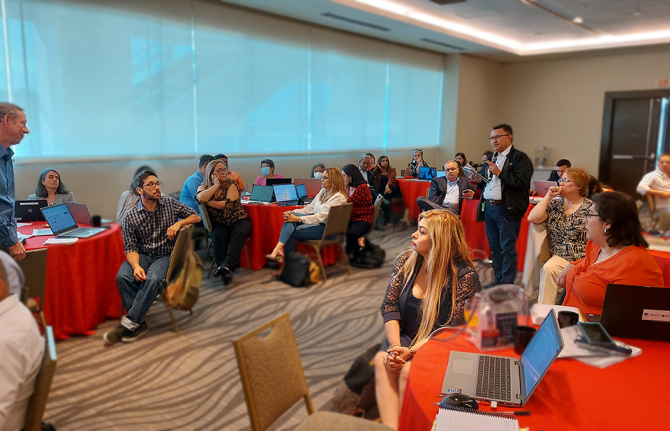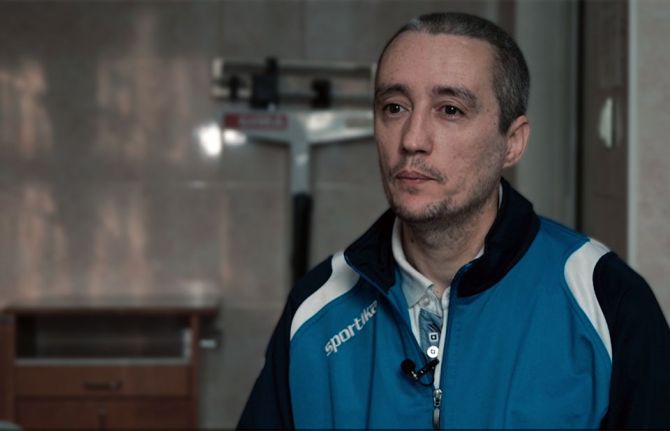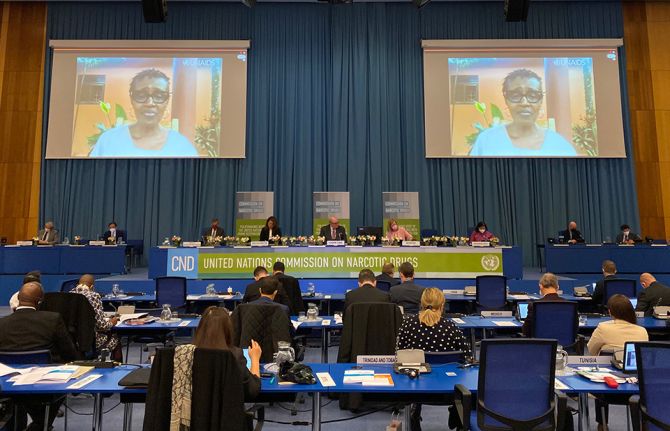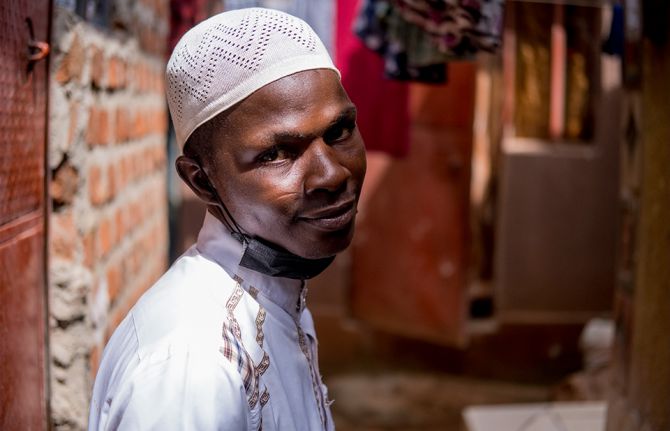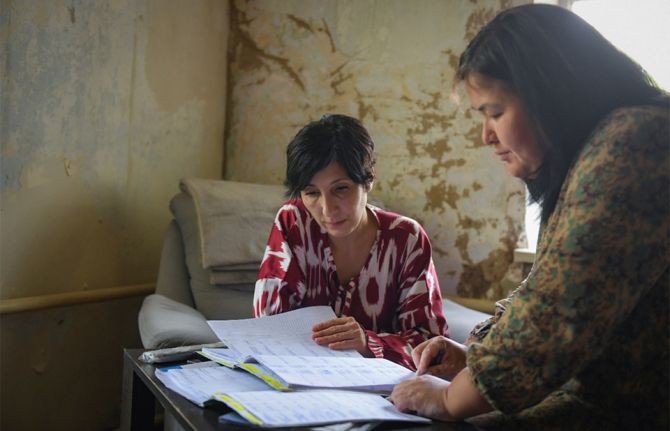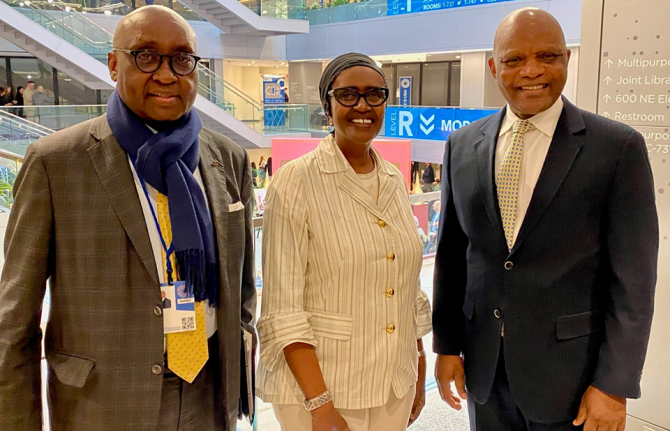
Feature Story
New HIV Indicator Registry improves access to high-quality indicators
13 March 2009
13 March 2009 13 March 2009UNAIDS announces the launch of a central repository of information on indicators used to track the response to the HIV epidemic. Through the Indicator Registry, professionals in monitoring and evaluation, for the first time ever have access to the complete definitions of all key indicators in one central database.
Coordinated monitoring and evaluation approaches are crucial to generating reliable and timely information on the AIDS epidemic and the response across countries and regions. The use of standardized definitions and indicators supports countries in measuring their way towards universal access to HIV prevention, treatment, care and support as well as in taking evidence-informed action and ensuring accountability.
The registry allows its users to select appropriate indicators to monitor a country’s epidemic and response and specifically highlights the harmonized indicators that have been endorsed by a wide range of multilateral agencies and international organizations.
A valuable resource for country monitoring
The Indicator Registry is a unique and highly versatile database. Key target audience of the Indicator Registry are national AIDS authorities in the process of defining or reviewing the monitoring and evaluation plan for their national response to HIV, as well as implementers monitoring their HIV programmes. By using the registry, countries are able to:
- access information on the full range of indicators available,
- select appropriate indicators for the country’s epidemic and the response,
- manage and share their country specific set of indicators,
- use standards tools for development of new indicators when needed,
- export indicator definitions to PDF, Word, Excel or SDMX for data collection by applications such as the Country Response Information System (CRIS).
The tool not only allows benchmarking of existing indicators, but can be applied to newly created indicators to ensure that the highest quality information is being collected. Integration of standards tool with the Indicator Registry is an unprecedented step to improve the quality and consistency of indicators used in HIV.
Additional features will be added in the coming year including independent rankings of the indicators, using a new Indicator Standards Tool developed by a technical working group of the UNAIDS Monitoring and Evaluation Reference Group (MERG), which includes representatives from various UN agencies, bilateral donors, country representatives and civil society.
The development of the indicator registry was a multi-agency effort with support from the World Health Organization, UNICEF, the Global Fund to Fight AIDS, Tuberculosis and Malaria, the U.S. President’s Emergency Plan for AIDS Relief, and the UNAIDS Secretariat and guided by the MERG that sets standards for indicators and their use.
For access to the Indicator Registry, go to: www.indicatorregistry.org
For more information, you may contact Mr. Taavi Erkkola (erkkolat@unaids.org).
New HIV Indicator Registry improves access to high-quality indicators
Cosponsor:
World Health Organization
UNICEF
Partners:
The Global Fund to Fight AIDS, Tuberculosis and Malaria
The U.S. President’s Emergency Plan for AIDS Relief
Contact:
By email to Mr Taavi Erkkola: erkkolat@unaids.org
External links:
UNAIDS Monitoring and Evaluation Reference Group (MERG)
Tools:
Related
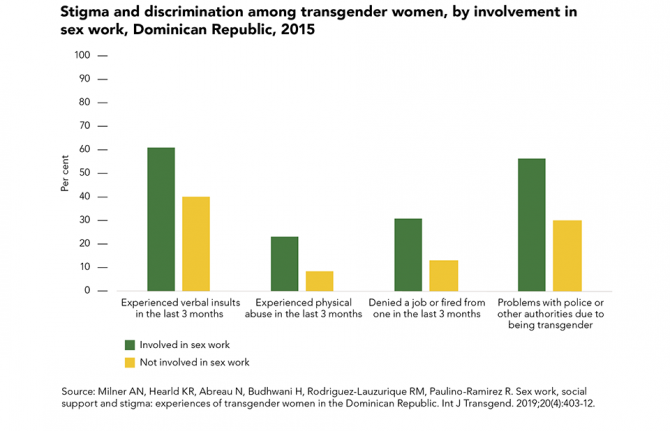 Transgender sex workers face frequent abuse
Transgender sex workers face frequent abuse

29 March 2022
 Many key populations avoid health services
Many key populations avoid health services

21 February 2022

Feature Story
Greater action needed to protect women’s inheritance and property rights in the face of HIV
13 March 2009
13 March 2009 13 March 2009
Elizabeth Mataka, UN Special Envoy for HIV/AIDS in Africa.
Credit: UNDP
If more women are to avoid HIV infection, laws on inheritance and property rights should be revisited, revised or better enforced. This was one of the key messages emerging from a high-profile side-event on women’s inheritance, land and housing rights in the context of HIV, which took place yesterday, 12 March, during the 53rd session of the Commission on the Status of Women held at UN Headquarters in New York.
The discussion brought together a range of speakers including Elizabeth Mataka, UN Special Envoy for HIV/AIDS in Africa and Rose Gawaya, Senior Gender Adviser of the UNDP HIV/AIDS Practice based in Johannesburg, South Africa. The event focused on reviewing innovative work that has been done to increase women’s access to, control over, and ownership of land and housing in a bid to mitigate the impact of AIDS. Realistic and workable strategies, from the grassroots to international level, were explored.
"Lack of equal rights for women to inheritance and property excludes women from accessing resources that would help reduce their vulnerability to HIV and improve their ability to cope with the consequences of the epidemic."
Elizabeth Mataka, UN Special Envoy for HIV/AIDS in Africa
Ms Mataka highlighted the increased vulnerability of women due to AIDS and called on governments to harmonise often conflicting laws and legislation. She said “Lack of equal rights for women to inheritance and property excludes women from accessing resources that would help reduce their vulnerability to HIV and improve their ability to cope with the consequences of the epidemic.”
The issue of such rights for women is of critical importance in addressing HIV. When a woman’s husband dies from AIDS, she might lose her home and land, inheritance and livelihood. This can leave her in a situation where she is forced to enter into relationships and behaviours that render her more vulnerable to the virus. The panellists contended that when women have enhanced access to ownership and control of land and property rights they have a greater range of choices, are far more able to exercise autonomy and, ultimately, are better able to protect themselves.
As well as the revision or implementation of existing laws on inheritance, the panellists recommended increased access to information and legal experts, enhanced partnerships among organizations working in the area and strengthened networks to raise awareness of the issues, with a focus on grassroots women as critical drivers of change. They also suggested greater use of the media and creative ways of sharing and packaging messages, while highlighting the need to increase the scope of research.
Other participants in the panel included: Jeanmarie Fenrich, Fordham Leitner Centre for International Law and Justice; Seodi White, Women and Law in Southern Africa (Malawi); Esther Mwaura, GROOTS Kenya, Huairou Commission; and Anne Gathumbi, Open Society Initiative for East Africa, Law and Health Initiative.
This event was organized by UNDP, the Huairou Commission and Soros/OSI with support from UNAIDS, GROOTS, ICRW, COHRE, Fordham Law Leitner Center and WLSA Malawi.
Greater action needed to protect women’s inheritance and property rights in the
Cosponsors:
Partners:
Fordham Leitner Centre for International Law and Justice
Women and Law in Southern Africa
Huairou Commission
Open Society Initiative for East Africa
The Global Coalition on Women and AIDS
Feature stories:
Commission on the Status of Women opens with call for action to achieve universal access and gender equality (02 March 2009)
UN Special Envoy for AIDS in Africa Elizabeth Mataka (15 September 2009)
External links:
Commission on the Status of Women 53rd Session
Official documentation
Publications:
An Analysis of the Gender Policies of the Three Major AIDS Financing Institutions: The Global Fund to Fight AIDS, Tuberculosis and Malaria, the World Bank and the President’s Emergency Plan for AIDS Relief (pdf, 166 Kb)
UNIFEM fact sheets on gender-related aspects of AIDS (pdf, 311 Kb)

Feature Story
Injecting drug use and HIV: Interview with UNAIDS Team Leader, Prevention, Care and Support team
12 March 2009
12 March 2009 12 March 2009The Commission on Narcotic Drugs (CND) is meeting at the United Nations Office in Vienna for its 52 session, from 11-20 March 2009. At this session, governments will assess the progress achieved in meeting the goals defined in the 1998 UN General Assembly Special Session on Illicit Drugs.
In an interview, Mr Michael Bartos, UNAIDS Team Leader, Prevention, Care and Support team, shares his thoughts on the Commission’s progress in addressing the link between injecting drugs and HIV.
The 52nd session of the Commission on Narcotic Drugs is taking place 11 years after the landmark UN General Assembly Special Session on Illicit Drugs in 1998. Where are we today in addressing the links between HIV and drug use?
This year’s session of the Commission on Narcotic Drugs (CND) in Vienna marks ten years plus a year of reflection since the 1998 UN General Assembly Special Session on Illicit Drugs. The Commission and its high-level ministerial segment will be looking at progress made since 1998, the current situation and the next steps in the response to the global drug problem.
HIV is only one of the many aspects of the global drug problem. At the CND it is considered in the context of “demand reduction” where members will consider how to deal with both direct harms to drug users and the associated harms which include HIV.
"We are now very well aware of the central link between HIV and injecting drug use, and aware that the nexus has to be broken if we’re really to have any hope of getting HIV as an epidemic under control in many parts of the world."
Michael Bartos, UNAIDS Team Leader, Prevention, Care and Support team
Since 1998 we have become much more conscious of the intertwined nature of the epidemics of drug use and HIV. In 1998 we were already able to see the extent to which HIV had been transmitted among injecting drug users, and we were aware of the fact that injecting drug use was a very efficient way for HIV to spread across the countries. But at that stage the extent of the potential problem was not yet fully in view. For example the Russian HIV epidemic —which is largely driven by injecting drug use— had very few HIV cases before the beginning of the 90s. We now talk about Russia having one million HIV cases. The reality is that the decade of the 90s saw the explosive growth of HIV amongst injecting drug users in Russia and in a number of other countries.
So we are now very well aware of the central link between HIV and injecting drug use and aware that the nexus has to be broken if we’re really to have any hope of getting HIV as an epidemic under control in many parts of the world.
What are some of the key challenges in responding to the issues of HIV and drug use?
There are a series of challenges to properly addressing HIV amongst injecting drug users. The first is that in most countries injecting and other drug use are illegal. Therefore these behaviours and the ways they are controlled fall under the authority of the police.
This is an issue in relation to HIV as the most effective prevention strategies are those which include the people who are most affected. It has been very difficult for people who inject drugs to argue that they can, should, and indeed must, be part of the solution to AIDS and not viewed simply as part of the problem and thrown into prison or treatment camps.
Injecting drug users can find themselves marginalized in most social responses, including the responses to HIV. A considerable challenge is how to assist people who use drugs access HIV services and how to assist organizations who help provide services to people who use drugs, including HIV services.
Can law enforcement agencies and AIDS organizations work together?
Some real achievements have been made when law enforcement authorities and people who use drugs have found a common cause working together to deal with the harms associated with injecting drug use. That’s one of the things that we need to focus on: the ways in which positive policing can support AIDS response.
What will UNAIDS highlight at the Commission on Narcotic Drugs?
At the Commission on Narcotic Drugs UNAIDS wants to draw attention to the scale of the problem. There is virtually no country in the world where there aren’t at least some people who inject drugs. Recent estimates, constructed under the auspices of the reference group to the United Nations system on injecting drug use, show around 16 million drug users across the world, an estimated 3 million are living with HIV. That’s quite a considerable part of the global HIV epidemic. In fact 30% of the global HIV epidemic outside sub-Saharan Africa is among injecting drug users.
"Many IDUs are excluded from HIV treatment programmes because those running the programmes assume that people who use drugs would be unable to take their HIV treatment regularly."
Michael Bartos, UNAIDS Team Leader, Prevention, Care and Support team
But even more important than drawing attention to the scale of the problem is moving the focus to the scale of the response needed. A number of countries around the world are moving to full scale implementation of harm reduction services to deal with HIV amongst people who inject drugs.
These services include access to opioid substitution therapy such as methadone and buprenorphine services as a way drug users can be assisted to deal with their addiction. Other services include access to drug treatment and sexual health services, condoms and access to antiretroviral therapy for HIV for those drug users who need it.
Many IDUs are excluded from HIV treatment programmes because those running the programmes assume that people who use drugs would be unable to take their HIV treatment regularly.
Needle and syringe exchange services have proven to be effective in ensuring that drug injectors do not share contaminated equipment—which is a very efficient way of passing on the virus.
A number of countries are scaling up access to this full range of services. Impressive work has been done by countries such as Indonesia. Malaysia has made high level commitments to address these questions among its population. China has been very seriously addressing the way in which can fully scale up its package of services in relation to HIV and injecting drug use. The same has applied to many parts of India, and Bangladesh which have also made some impressive commitments. So particularly in east and south-east Asia there have been some strong developments. Also In eastern Europe and central Asia there have been signs that the most successful national responses to HIV amongst IDUs are looking to provide these services at full scale.
Do you anticipate the Commission on Narcotic Drugs at this session to make some headway on harm reduction? What needs to be done, politically speaking, to get harm reduction on Member States’ agenda?
"It has been very difficult for countries around the world to get the right balance—or to come to consensus on how to balance— the twin desires of getting people to not use drugs and also reducing the harms associated with drug use."
Michael Bartos, UNAIDS Team Leader, Prevention, Care and Support team
The Declaration of Commitment on HIV/AIDS adopted by the UN General Assembly Special Session on HIV/AIDS in 2001 makes a clear commitment to the range of harm reduction approaches. This was then repeated by the General Assembly in its 2006 Political Declaration on AIDS. However, the phrase “harm reduction” in the context of “drug control” which is reflected in the Commission on Narcotic Drugs, remains a contested term.
Apart from a question of terminology, harm reduction is also contested on a substantive level. It has been very difficult for countries around the world to get the right balance—or to come to consensus on how to balance— the twin desires of getting people to not use drugs and also reducing the harms associated with drug use.
I think that there is a strong sense across the world that a public health approach, a harm reduction approach, is the more prominent perspective in the global discourse. However it still hasn’t found its expression in the policies of a number of countries.
We have a situation where in some countries the national drugs authorities who consider questions of drug use and HIV may not even know what their counterparts in the national health and AIDS authorities are doing in relation to their response to HIV amongst IDUs.
One of the priorities for UNAIDS, alongside United Nations Office on Drugs and Crime (UNODC) which is our lead cosponsor on these issues, is to actually bring together drug authorities, AIDS authorities and prison authorities to talk jointly about the strategies which they are adopting to identify jointly what the barriers are to effective strategies for dealing with these intertwined problems in their settings such as prisons, or in relation to street policing, or in relation to HIV services and health services.
Back to topInjecting drug use and HIV: Interview with UNAIDS Team Leader, Prevention, Care
Cosponsors:
Press centre:
High Commissioner calls for focus on human rights and harm reduction in international drug policy (10 March 2009)
Feature stories:
OPINION: Silence on Harm reduction not an option (11 March 2009)
51st session of the Commission on Narcotic Drugs (11 March 2008)
Reducing drug related harm (14 May 2007)
Injecting drug use: focused HIV prevention works (11 May 2007)
Harm reduction to be scaled up in Ukraine (11 April 2007)
Increased HIV services for drug users needed (14 November 2006)
External links:
The Commission on Narcotic Drugs (CND)
Statements:
Publications:
Best Practice Publication: High Coverage Sites—HIV Prevention among Injecting Drug Users IDU in Transitional and Developing Countries ( En | Fr | Es | Ru )

Feature Story
OPINION: Silence on harm reduction not an option
11 March 2009
11 March 2009 11 March 2009
Today of the estimated 16 million people world wide who inject drugs—3 million are HIV positive. Any discussion on drugs cannot ignore their needs and human rights.
Credit: UNAIDS
In 1998, the UN General Assembly held a Special Session on the world drug problem. At the time there was little discussion on the linkage between HIV and drugs. Today of the estimated 16 million people world wide who inject drugs—3 million are HIV positive. Any discussion on drugs cannot ignore their needs and human rights.
Over the years the issue of HIV and drug use (especially injecting drug use) has grown. However, the global response has not followed the scientific evidence and harm reduction has been largely excluded.
Harm reduction programmes include access to sterile injecting equipment, opioid substitution therapies, condoms, STI treatment, information on sexual transmission of HIV and community-based outreach. These are the most cost effective means of reducing HIV related risk behaviors. They not only prevent transmission of HIV but also of hepatitis C and other blood borne viruses.
The word “only” hasn’t worked for HIV prevention, treatment, care and support programmes. And the evidence shows that programmes that “only” focus on one area of drug use will not work either.
Too often countries have taken the one dimensional approach of reducing drug demand or supply. The word “only” hasn’t worked for HIV prevention, treatment, care and support programmes. And the evidence shows that programmes that “only” focus on one area of drug use will not work either.
Countries that have adopted a comprehensive approach to HIV and drug use have seen a slowing and reversal in the spread of HIV among people who inject drugs. This includes countries such as Australia, UK, France, Italy, Spain, and Brazil, and in some cities in Bangladesh, the Russian Federation, and Ukraine. In recent years countries such as Indonesia and China are scaling up access to harm reduction programmes for injecting drug users.
No evidence has been found of unintended negative consequences such as increased initiation, duration or frequency of injecting drug use. On the contrary it has been found that countries which have adopted this public health approach to HIV prevention among people who inject drugs have been the most successful in reversing the HIV epidemic.
In contrast to the overwhelmingly beneficial effects of harm reduction, law enforcement approaches alone do little to reduce drug use and drug-related crime and are often associated with serious human rights abuses and poor health outcomes for people who use drugs. They include arbitrary arrests, prolonged detention, compulsory drug registration and unwarranted use of force and harassment by law enforcement officers. Drug laws may make possessing and distributing sterile needles and syringes an offence, and opioid substitutes may be classified as illegal, despite both methadone and buprenorphine being on the WHO model list of essential medicines.
It should not be a crime to access clean needles. It should not be a crime to access substitution therapy.
These measures reinforce stigma against people who inject drugs, create disincentives to accessing services (including treatment for drug dependence or HIV) and may make health and welfare professionals wary of offering services to people who use drugs. But when law enforcement and public health efforts come together, the outcomes are very successful– for example in Britain and Australia where drug action teams police focus on the crime fighting and successfully refer drug users to health and welfare services. It is time to come together, not work against each other.
It should not be a crime to access clean needles. It should not be a crime to access substitution therapy. The global drug problem is complex and cannot be solved in isolation. A coming together of organizations working on drug control and AIDS is urgently needed. Working together the world has a better chance to employ solutions that save lives.
The largest numbers of HIV positive people who inject drugs are in Eastern Europe, East and Southeast Asia and Latin America. HIV prevalence among some groups in these regions is estimated at over 40%. New epidemics of injecting drug use are also emerging in sub-Saharan Africa. HIV can spread extremely quickly once it enters a population of people who inject drugs. Increases in HIV prevalence from 5% to 50% in one year have been observed among people who inject drugs in some settings, and HIV can also spread from people who inject drugs to their sexual partners and other populations at higher risk of HIV exposure.
Right Hand Content
Cosponsors:
Press centre:
High Commissioner calls for focus on human rights and harm reduction in international drug policy (10 March 2009)
Feature stories:
51st session of the Commission on Narcotic Drugs (11 March 2008)
Reducing drug related harm (14 May 2007)
Injecting drug use: focused HIV prevention works (11 May 2007)
Harm reduction to be scaled up in Ukraine (11 April 2007)
Increased HIV services for drug users needed (14 November 2006)
External links:
The Commission on Narcotic Drugs (CND)
Statements:
Publications:
Best Practice Publication: High Coverage Sites—HIV Prevention among Injecting Drug Users IDU in Transitional and Developing Countries ( En | Fr | Es | Ru )

Feature Story
Consultation on HIV prevention in the Russian Federation
10 March 2009
10 March 2009 10 March 2009
A consultation on the progress, gaps and next steps towards achieving universal access to HIV prevention in the Russian Federation took place in Moscow on 25-26 February.
Credit: UNAIDS
A consultation on the progress, gaps and next steps towards achieving universal access to HIV prevention in the Russian Federation took place in Moscow on 25-26 February. The meeting was convened by the Russian Ministry of Health and Social Development, the Federal Service for Surveillance on Consumer Rights Protection and Human Well-being, the Federal AIDS Centre and UNAIDS. Around 100 health care professionals took part in the conference including representatives of the All-Russia Association of People Living with HIV/AIDS, and members of civil society from 23 Russian regions.
Russia has made significant progress towards achieving their universal access to HIV prevention, treatment, care and support targets endorsed by the 2006 Political Declaration on HIV/AIDS. In 2008, 55,000 people received HIV treatment, and 24 million people were screened for HIV. This year for the first time ever 400 million roubles (about US$ 14 million) of federal budget were earmarked for HIV prevention, which is a doubling of the previous years’ budget.
"There are about 400 prevention projects carried out within the framework of the National Priority Health Project. However the HIV epidemic keeps on spreading. While progress has been made in HIV treatment, screening and prevention of mother-to-child transmission other HIV prevention interventions need improvement."
Alexander Goliusov, head of HIV/AIDS department of Federal Service for Surveillance on Consumer Rights Protection and Human Well-being
The number of new HIV infections in Russia has not reduced and accounts for almost 40,000 people a year. This is in spite of increased spending and widening coverage of HIV prevention programmes among populations at higher risk including people who inject drugs, sex workers, prisoners and men who have sex with men as well as young people and the general population. These numbers confirm the need to increase the coverage of key populations through establishing evidence-informed prevention methods and by ensuring the provision of quality services.
The meeting provided an opportunity to address the most urgent issues around HIV prevention in Russia. Participants analysed the need to identify weak components in the HIV prevention work and stepping up its efficiency by introducing specific measures. Alexander Goliusov, head of HIV/AIDS department of Federal Service for Surveillance on Consumer Rights Protection and Human Well-being, said:
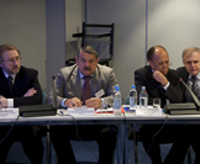
L to R: Dr. Vadim Pokrovsky, Head of Federal AIDS Centre, Dr. Alexander Goliusov, Head of HIV/AIDS Department of Federal Service for Surveillance on Consumer Rights, Protection and Human Well-Being, Fritz Lherisson, a.i. Regional Director, Regional Support Group, Eastern Europe and Central Asia
Credit: UNAIDS
"There are about 400 prevention projects carried out within the framework of the National Priority Health Project. However the HIV epidemic keeps on spreading. While progress has been made in HIV treatment, screening and prevention of mother-to-child transmission other HIV prevention interventions need improvement.”
Currently 45% of all country’s HIV prevention efforts are aimed at most-at-risk populations and 55% of the projects focus on various kind of support for people living with HIV. Russia implements different successful innovative programmes. However the conference emphasized that most of the projects do not go beyond the stage of pilot efforts, thus the population exposed to HIV prevention measures remains insufficient. For example, the needs of young people are not adequately addressed by HIV prevention work. In 2007 only 33.8% of young people of aged 15-24 had correct understanding of HIV infection. The Russian government set the goal for 2010 at 95%.
“Russia has made substantial progress towards a number of universal access indicators, mainly in the field of HIV treatment. Regretfully, as it is in many other countries, achievements in widening HIV prevention programmes especially among most-at-risk populations and the youth are lagging behind the advances in treatment,” said Marina Semenchenko, acting team leader of the UNAIDS office in Russia. “At the meeting, Russian experts discussed various viewpoints of efficient and not efficient measures of HIV prevention, and what could be done to achieve tangible results in HIV prevention.”
The discussion also addressed the issue of introducing a sustainable HIV prevention programme in the secondary school education system. Currently, HIV information - the ways of transmission and prevention - is included in school subjects as Biology, and Health and Safety; however they do not provide an adequate and up-to-date understanding of the disease.
Participants at the meeting also highlighted that one of the main obstacles to effective HIV prevention programmes was the lack of interagency collaboration and the limited engagement of the Drug Service in addressing the needs of injecting drug users.
The debates resulted in a resolution with recommendations on a range of required measures, in particular the need to elaborate a National HIV Prevention Concept. The final resolution will be submitted to the Governmental Commission on the Issues of Prevention, Diagnostics and Treatment of Decease Caused by Human Immunodeficiency Virus.
Consultation on HIV prevention in the Russian Federation
Feature stories:
Hidden HIV epidemic amongst MSM in Eastern Europe and Central Asia (26 January 2009)
“Artists Against AIDS” help fight stigma and discrimination in Russia (17 November 2008)
Building on experience to scale up HIV services (06 November 2008)

Feature Story
Minister of Foreign Affairs of the Russian Federation discusses financial crisis with UN agencies
10 March 2009
10 March 2009 10 March 2009
On 7 March 2009, the Minister of Foreign Affairs of the Russian Federation hosted a meeting of UN Heads of Agencies in Geneva to focus on the impact of the global financial crisis.
On 7 March 2009, Minister of Foreign Affairs of the Russian Federation, Mr Sergei Lavrov, hosted a meeting of UN Heads of Agencies in Geneva to focus on the impact of the global financial crisis.
This was the first meeting of UNAIDS Executive Director Michel Sidibé. At the discussion, Michel Sidibé expressed his concern that the impact of the global financial crisis threatens to roll-back the hard-won progress made in the global response to AIDS if it results in donors not fulfilling their global commitments to increase funding for AIDS to reach universal access goals, and, if governments are less able to afford to buy essentials such as HIV testing kits and life-saving antiretroviral drugs.
The UNAIDS Executive Director articulated his vision of how the financial crisis also represents an opportunity for countries and international organizations to pursue much needed reforms, to refocus on results at country level, and to deliver more with less. He also cited UNAIDS as model of UN reform, being a joint programme across 10 United Nations agencies and programmes, delivering coordinated results at global and country level.
At the meeting with Mr Lavrov, Michel Sidibé encouraged Russia’s continued leadership to ensure stable financing for AIDS, health and development. The Russian government has become the primary funder of the national AIDS response and has made significant progress towards achieving its universal access targets in the following areas: prevention of mother to child transmission, scaling up HIV testing and counselling, expanding the coverage of medical supervision, and providing access to treatment (which has increased from 15,000 people in 2006 to 55,000 in 2008).
Despite a growing number of HIV prevention activities in the country, Russian and international experts agree that coverage of most prevention programme especially for vulnerable groups is insufficient. HIV prevention services are reaching only 39% of sex workers, 17% of men who have sex with men, and 24% of people who inject drugs. In addition, high levels of stigma prevent those most-at-risk and marginalized in society actively seeking AIDS services.
However, the Government of Russia has recently pledged additional financing for HIV programmes, including prevention. Under the leadership of the Minister of Health and Social Development of the Russian Federation Ms Tatiyana Golikova, the government’s HIV Commission formally adopted Russia’s universal access targets in March 2008.
UNAIDS looks forward to continuing work with the government of Russia on national and regional initiatives and on strengthening partnerships across the region.
Minister of Foreign Affairs of the Russian Federation discusses financial crisis
Feature stories:
EECA AIDS conference co-chairs meet (06 March 2009)
2nd Eastern Europe and Central Asia AIDS Conference ends (05 May 2008)

Feature Story
New report shows Asian migrant women in the Arab states have heightened vulnerability to HIV
10 March 2009
10 March 2009 10 March 2009
The new study, Vulnerabilities of Migrant Women: from Asia to the Arab Statessays that Asian women migrating to Arab countries often face circumstances which leave them highly vulnerable to factors leading to HIV infection.
Asian women migrating to the Arab states often do so under unsafe conditions, are targets of sexual exploitation and violence and are highly vulnerable to factors that lead to HIV infection, according to a study launched today, produced in collaboration by UNDP, UNAIDS, CARAM Asia, IOM,UNIFEM, and Caritas Migrant Centre in Lebanon.
HIV Vulnerabilities of Migrant Women: from Asia to the Arab States examines the health, social and economic toll that migrant women often face, particularly those who are low-skilled. In the current global economic crisis, with rising unemployment, their situation can become precarious as they tend to be in a weak bargaining position and are more likely to accept poor conditions to secure or keep a job.
Migration itself is not a risk factor for HIV infection, but it is the conditions under which people migrate, and the working and living conditions they find themselves in that make them highly vulnerable to HIV.
Based on some 600 interviews in four Asian countries and three Arab states (Bahrain, Lebanon and United Arab Emirates), the study reveals that migrant women, many of whom become domestic workers, often lack legal coverage, suffer duress and sexual exploitation in the workplace, and have limited or no access to health and social services.
The Arab States are the primary destination for many migrant workers from Asia, including the four countries which are the focus of research; Bangladesh, Pakistan, the Philippines and Sri Lanka.
The movement of women and money between the countries studied is considerable. The report estimates that 70-80 percent of migrants from Sri Lanka and the Philippines to the Arab States are female. Between 1991 and 2007, 60 percent of women migrants from Bangladesh left to find employment in these countries and remittances from Filipinos working in the Arab States in 2007 amounted to US$ 2.17 billion. In Bangladesh, migrant workers sent back close to US$ 637 million from the UAE. Current remittances by migrant workers from Sri Lanka amount to US$ 3 billion.
HIV Vulnerabilities of Migrant Women: from Asia to the Arab States charts a way forward. According to the report, host countries and countries of origin share equal responsibility to provide protective policies and programmes for women who seek a better life away from home. Recommendations include:
- Migrants who have a medical condition that does not impair their ability to work, such as living with HIV, should not be denied the right to work
- Health insurance schemes for migrant workers should cover all aspects of health, including HIV
- Hiring agents and employer blacklists need to be created, monitored and shared
- Embassy and consular staff in host countries should be trained on the special needs and vulnerabilities of migrant women
- Existing labour laws should be changed/reformed to cover migrant workers in the domestic sector
New report shows Asian migrant women in the Arab states have heightened vulnerab
Cosponsors:
Partners:
CARAM Asia (Coordination of Action Research on AIDS and Mobility)
Caritas Migrant Centre in Lebanon
Feature stories:
Insight into AIDS responses in Middle East and North Africa (04 February 2009)
Gender and AIDS in the Middle East and North Africa (08 August 2007)
Publications:
HIV Vulnerabilities of Migrant Women: from Asia to the Arab States:
Full report (pdf, 2.27 Mb)
Executive summary (pdf, 822 Kb)
Migrants and HIV: “Far Away from Home” club (pdf, 899 Kb)

Feature Story
Joint Islamic action to respond to AIDS
10 March 2009
10 March 2009 10 March 2009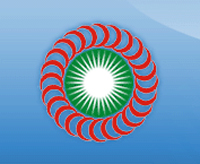
The Islamic Conference of Health Ministers (ICHM) brought together representatives from 57 member countries from 1 – 4 March in the I.R. of Iran. Credit: ICHM
The Islamic Republic of Iran hosted the second session of the Islamic Conference of Health Ministers (ICHM) bringing together representatives from 57 member countries from 1 – 4 March to discuss health issues facing the Islamic community under the theme "Health Equity in the Islamic Ummah."
The aim of the conference was to formulate concrete proposals in addressing health issues through initiating a “Health Vision” for the Organization of the Islamic Conference (OIC), as well as to review the implementation and progress made on the decisions and recommendations of the First Islamic conference of Ministers of Health held in Kuala Lumpur, Malaysia in 2007.
“Policy makers in the area of health should adopt a comprehensive strategy towards health issues. A strategy which considers health as the focus of development, where health is evaluated in a broad sense from physical to psychological, social, and spiritual health,” said H.E Professor Lankarani Minister of Health and Medical Education of I.R. Iran, during the opening of the meeting.
In relation to combating communicable diseases, it was noted with deep concern in the resolution adopted by the ministers on this subject, that AIDS is a crisis with disastrous consequences for the social and economic progress of all nations, including Muslim countries. The resolution urged OIC member states to foster HIV prevention programmes in cooperation with, among others, UNAIDS, WHO and the Global Fund. Such programs shall be formulated and implemented with full respect for Islamic, Cultural, Ethical and Social values of OIC member states.
"Ensuring universal access to HIV prevention, treatment, care and support is the cornerstone to reverse the HIV epidemic."
Renu Chahil-Graf, Director, UNAIDS Regional Support Team for Middle East and North Africa
There is no single HIV epidemic among the 57 OIC member countries. While the number of reported infections is on the rise in some countries and stable in others, higher HIV prevalence rates are documented among specific populations and settings within a number of countries. This is compounded by wider socioeconomic dynamics, such as changing lifestyles of young people, socio-political instability and conflict, gender inequality and mobility, factors that can increase vulnerability to HIV infection.
“Ensuring universal access to HIV prevention, treatment, care and support is the cornerstone to reverse the HIV epidemic,” said Renu Chahil-Graf, Director, UNAIDS Regional Support Team for Middle East and North Africa. “The opportunities afforded by the drive to universal access must be seized to ensure access to all essential commodities, gender equality, human rights, progress on all Millennium Development Goals and primary health care for all.”
The final resolution adopted by the OIC invites its member states and the OIC General Secretariat to contribute to the global response to AIDS in the context of international cooperation and partnership, and by actively sharing and disseminating the common Islamic vision and approach in responding to the HIV epidemic.
The OIC brings together 57 Member States inhabited by almost 1.5 billion people and spread over four continents in Asia, Africa, Europe and South America. The efforts of the OIC are mainly aimed at crystallizing a Joint Islamic Action to ensure, safeguard and protect the interests of the Muslim world. Since the 3rd Extraordinary Summit in Makkah Al-Mukarramah in 2005, whereby a Ten-Year Programme of Action was formulated, developmental targets in various domains including Health were set. For example, the Summit strongly called for combating pandemics and eradicating diseases and epidemics such as AIDS, Malaria, Polio and Tuberculosis.
Joint Islamic action to respond to AIDS
Region/country

Feature Story
UNICEF: Communities provide a bigger ‘family’ for orphaned children in Rwanda
09 March 2009
09 March 2009 09 March 2009This story was first published on UNICEF.org

Clementine, 18, and her sister, both HIV-tested and safe in eastern Rwanda.
Credit: UNICEF/2009/Frejd
Bamporeze is a non-governmental organization that started a community-based protection programme for children orphaned by AIDS in Rwanda soon after the genocide in 1995. Around 150,000 people live with HIV in Rwanda; 19,000 of them are children.
Clementine, 18, lives in eastern Rwanda and has been deeply affected by the AIDS epidemic.
“My parents died from an AIDS-related illness a few years ago,” she said, “but no one told us what they had or that we, too, should be tested.”
"My parents died from an AIDS-related illness a few years ago, but no one told us what they had or that we, too, should be tested."
Clementine, 18, lives in eastern Rwanda and has been deeply affected by the AIDS epidemic.
Clementine and her siblings were tested and now have a larger group they can rely on – an extended ‘family’ consisting of members of the community, mobilised by Bamporeze, who found out about Clementine and her siblings after their parents died.
Community support for orphans
While working with orphans, Bamporeze realised that foster families were not sustainable for all the orphans.
“There were just too many orphans,” said Bamporeze founder and coordinator Jeanne D’Arc Muhongayire. “So we decided to see how we could work with the whole community to try to rebuild children’s lives to create a feeling of a common responsibility for orphans.”
To create this larger family, Bamporeze, with support from UNICEF, helped orphaned children continue their education, learn skills and access information on reproductive health and life skills. Children in Clementine’s area also started their own agricultural cooperative to earn income to buy books, medicines and clothes. Bamporeze helped them find mentors who could be like parents to them.
A mentor to serve as parent
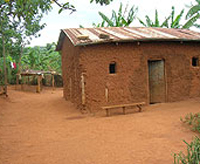
Clementine’s home in Rwanda; both of her parents died of AIDS-related illnesses several years ago.
Credit: UNICEF/2009/Frejd
“When Clementine and her siblings lost their parents, they were initially isolated from the other families,” said Patrick, who works with Bamporeze. “This happens to other children as well, and as their homes are spread out, it is hard to reach all of them to tell them that they are not alone.
“In fact,” Patrick continued, “I spend a lot of my time walking from one children’s household to another to ensure that all are registered with us and have access to the services. I then selected a mentor from the village – a person they trust and think can give them the support they need.”
“Our mentor comes to visit us every day,” said Clementine. “I talk to her about anything and she has introduced me to other children like us. It is good to know that we are not alone.”
Government bears responsibility
Bamporeze’s community-based programme for orphans has succeeded in registering every orphaned child with local authorities.
“This means that local government now also knows about these children and bears responsibility for their well-being,” said the Head of UNICEF Rwanda’s HIV and AIDS Section, Bernardine Mukakizima.
“Bamporeze has helped initiate a programme that serves as an example to other communities in this country,” she added. “We don’t have to wait for foster families or adoptions or even rely on them, if a community is mobilised and feels a sense of ownership for ‘its’ children, then orphaned children around this country will know that they are not alone.”
UNICEF: Communities provide a bigger ‘family’ for orphaned children in Rwanda
Cosponsors:
Feature stories:
Home Truths: Facing the facts on children, AIDS, and poverty (19 February 2009)
Revival of old traditions brings hope to orphans in Swaziland (30 August 2006)
Related

Feature Story
UNAIDS Executive Director meeting with U.S. Permanent Representative to the United Nations
09 March 2009
09 March 2009 09 March 2009
(from left) Ambassador Susan Rice, U.S. Permanent Representative to the United Nations and UNAIDS Executive Director Michel Sidibé, UN HQ New York, 2 March 2009.
Credit: USUN
On 2 March 2009 UNAIDS Executive Director Michel Sidibé met with Ambassador Susan Rice, U.S. Permanent Representative to the United Nations.
During their meeting Mr Sidibé thanked Ambassador Rice and the US Government for their continued support to UNAIDS and shared his thoughts on how an effective HIV response will support the achievement of the other Millennium Development Goals (MDGs).
Mr Sidibé also spoke on the need to address the obstacles to universal access to HIV prevention, treatment, care and support services. These include addressing stigma and discrimination, human rights and gender inequality as well as specific support for key populations including people who inject drugs and men who have sex with men.
Permanent U.S. Representative to the United Nations, Ambassador Susan E. Rice, shared her Government’s priorities and reaffirmed its continued commitment to the global AIDS response.
Ambassador Susan Rice was confirmed to the position of U.S. Permanent Representative to the United Nations by the U.S. Senate on January 22, 2009.
UNAIDS Executive Director meeting with U.S. Permanent Representative to the Unit
Feature stories:
Achieving the MDGs: Why the AIDS response counts (24 September 2008)

